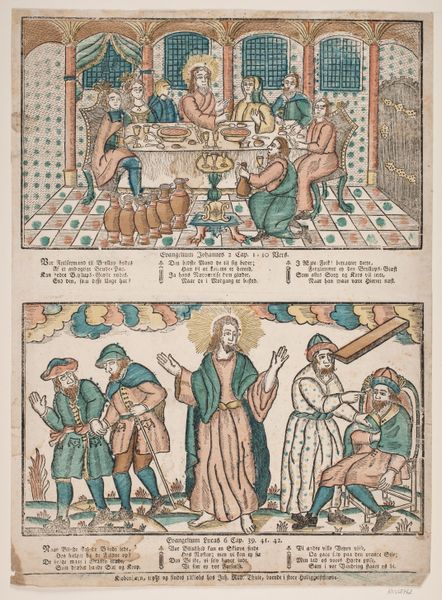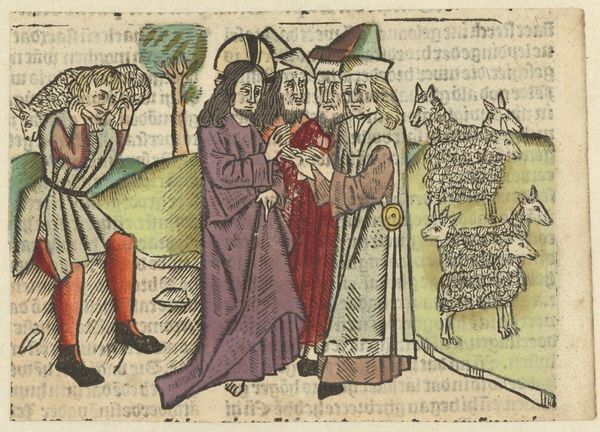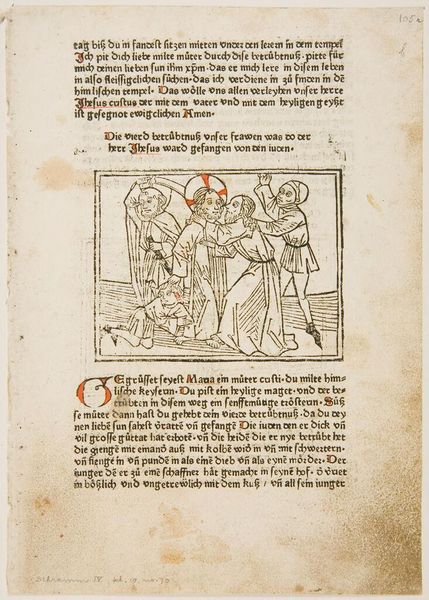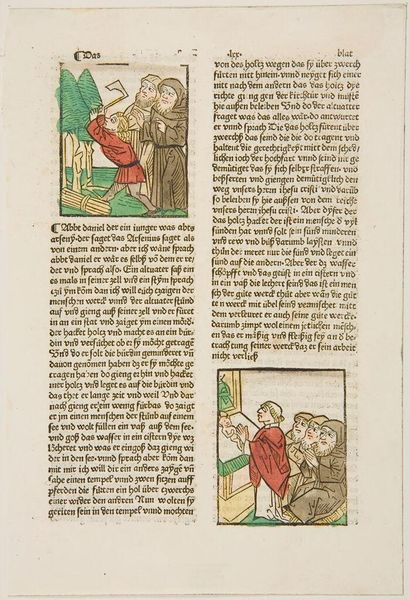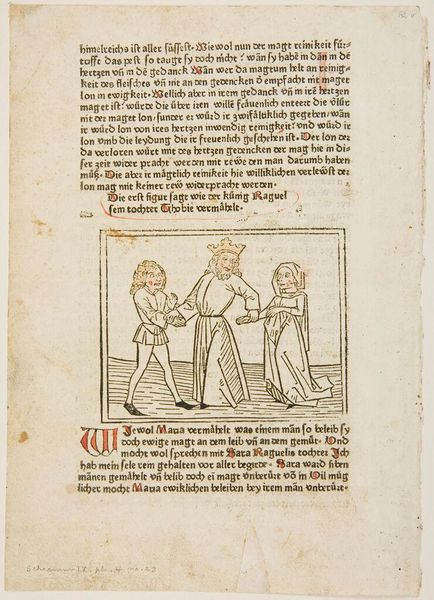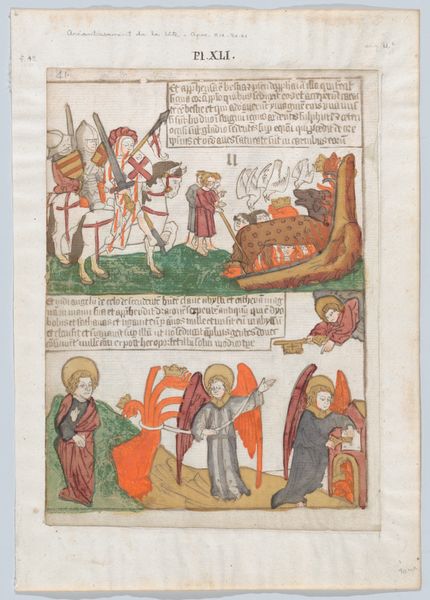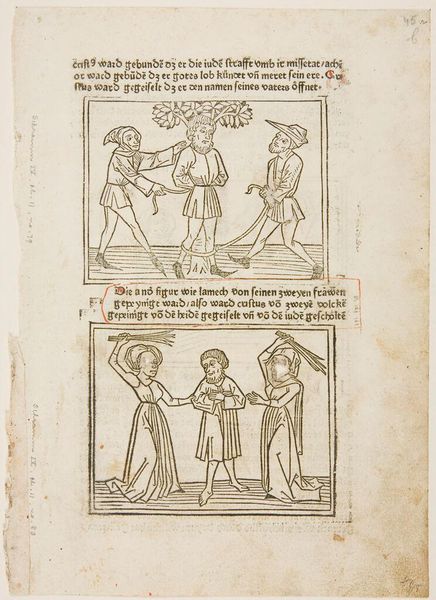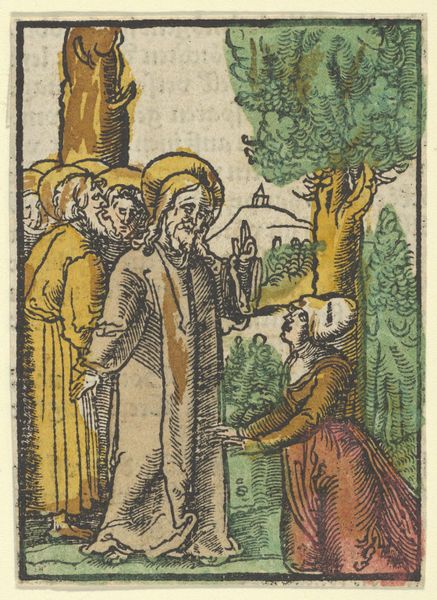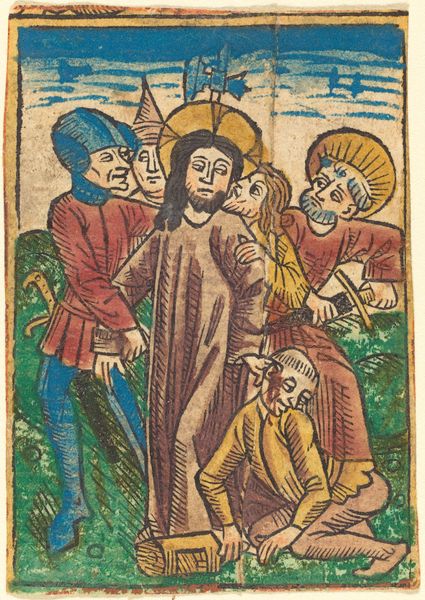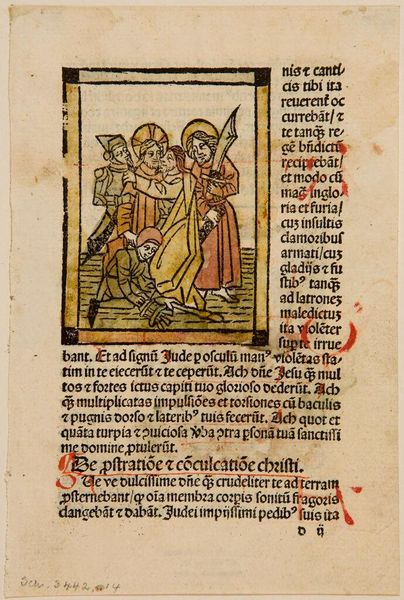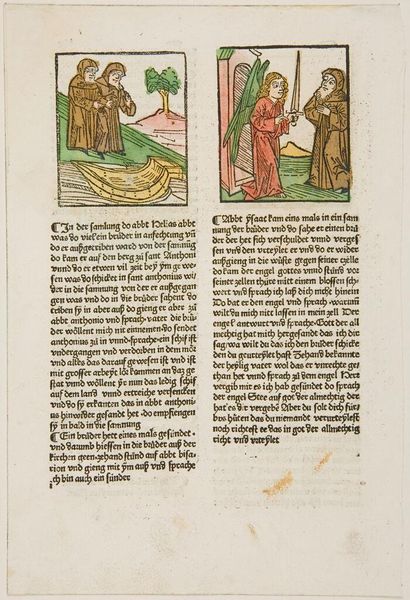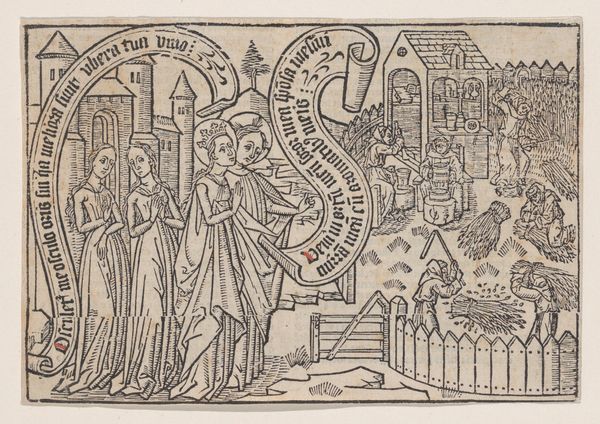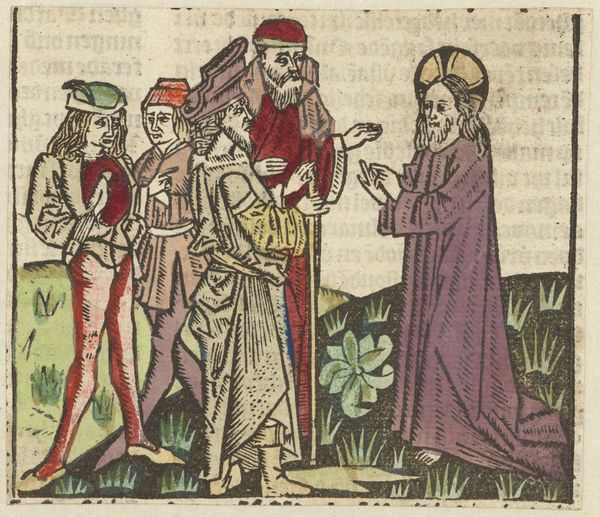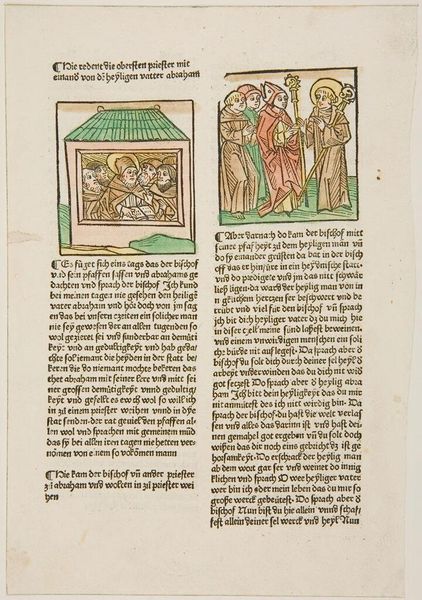
The Seven Angels Receiving the Cups of Color c. 1469 - 1470
0:00
0:00
coloured-pencil, tempera, print, ink
#
coloured-pencil
#
medieval
#
tempera
# print
#
ink
#
coloured pencil
Dimensions: image, sheet: 10 3/4 x 8 1/16 in. (27.31 x 20.48 cm)
Copyright: Public Domain
"The Seven Angels Receiving the Cups of Color" is an anonymous, vividly hand-colored print from around the 15th century. The print, with its apocalyptic themes, reflects the anxieties of a society grappling with plagues and social upheaval. The imagery of angels dispensing divine wrath through "cups of color" speaks to both religious fervor and the power dynamics inherent in faith. Consider the cultural context: medieval society was deeply stratified, with the church wielding immense influence over daily life. How did such images reinforce or challenge the established order? The act of distributing these cups could represent a divine intervention, a reshaping of the world order. The emotional weight of the scene lies in its representation of both judgment and potential renewal. The artist's choice of vibrant colors contrasts sharply with the somber text, creating a visual tension that underscores the complex relationship between faith, fear, and hope. This work doesn’t just depict a biblical scene; it invites us to reflect on how societies interpret moments of crisis and transformation.
Comments
minneapolisinstituteofart almost 2 years ago
⋮
Gutenberg's Bible appeared in 1455. The first book to combine his invention with printed illustrations appeared in 1463. At about the same time, perhaps a little earlier or a little later, a different kind of printed illustrated book-the blockbook-began to appear. Gutenberg's catered to a literate audience, which was a relatively small part of the populace. Monks recognized the power of the press, but they sought a cheaper method to produce printed books combining both word and image. They began to carve in relief both pictures and texts-comic book style -on wooden blocks that could then be inked and printed by hand. No metal type needed to be cast. No printing press was required. They needed only a reasonably good draftsman and a reasonably good woodcarver. The process was so simple that copies quickly began to appear. The first works to appear as blockbooks were basic texts of use to ordinary people: The Art of Dying, an abridged Bible, and The Apocalypse. The later was especially popular, for it not only warned of what was to come, but it was full of fantastic tales and imagery.
Join the conversation
Join millions of artists and users on Artera today and experience the ultimate creative platform.
